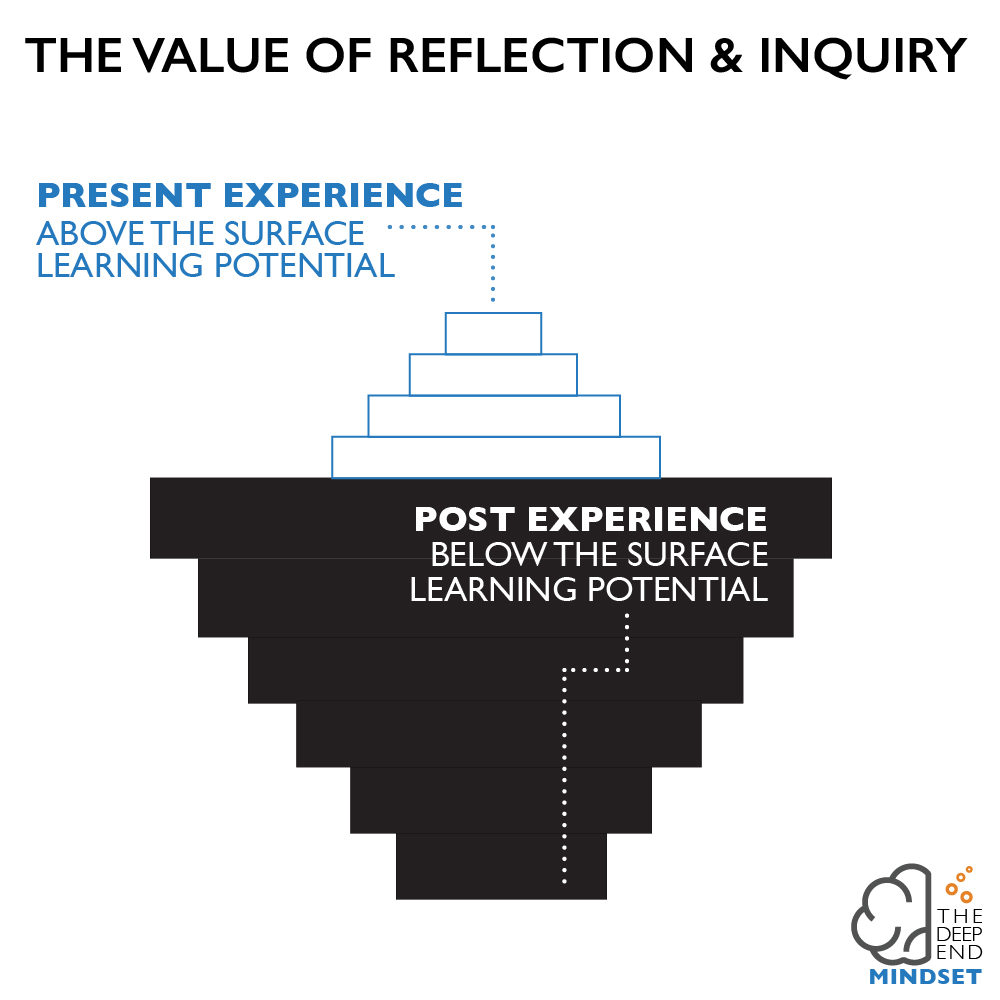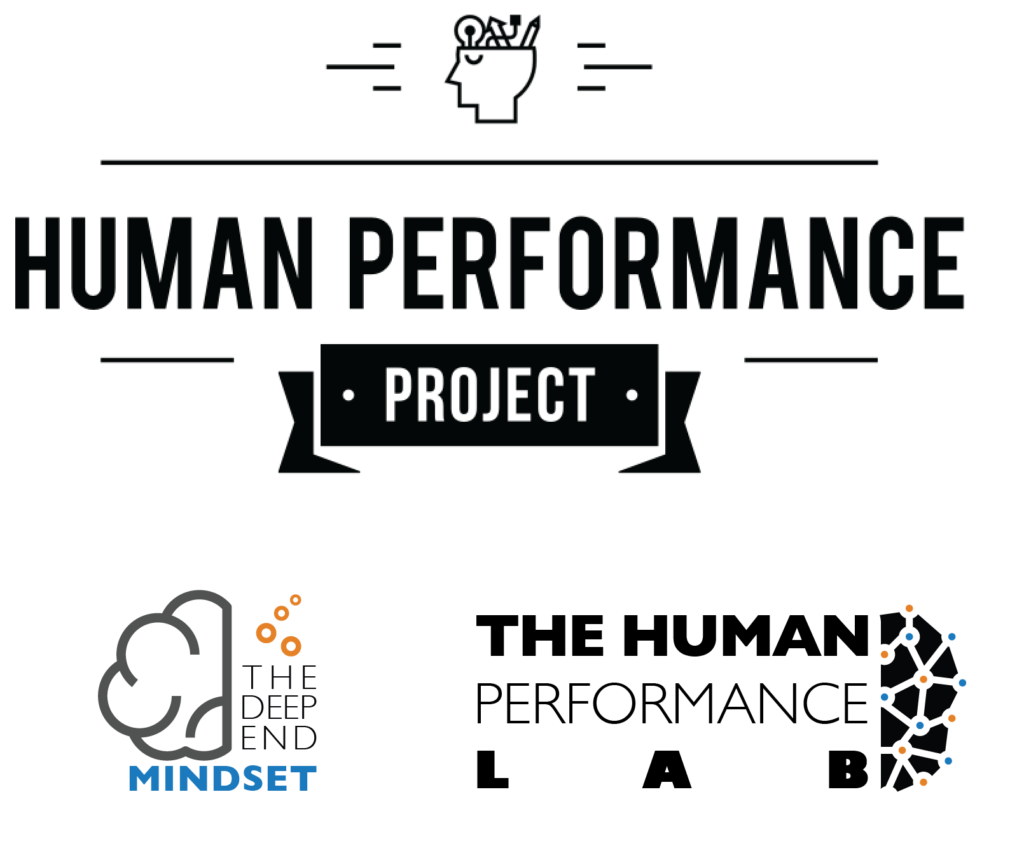-
How to Accelerate Your Learning & Growth Trajectory
Read moreLiving Life by a Simple Hypothesis
Sometimes I think we overcomplicate things in life. I find that when I live in tune with the hypothesis below, I am happy, fulfilled and feeling as if I’m doing my best work in the world.
I am at my best when striving towards a pursuit that intrinsically motivates me, is aligned with my values in life and challenges me beyond my comfort zone.
I refer to this state as “The Deep End” of life and I aspire to access this environment for as long and frequently as possible. Why? Because the opportunity it provides me for deep, paradigm shifting learning and growth is unrivalled.
I believe that over the long game of life — years and decades — this learning and growth compounds to create exponential value and results.
So far so good? Hopefully you can think of an experience in your own life where you have experienced the rich learnings from a dive way out of your comfort zone in the Deep End.
There’s one problem I have encountered with the Deep End, it is not actually where we capture our greatest learning and growth.
Let me explain further.
How We Learn: The Present and the Future
I believe our most significant learnings don’t actually arise when we are immersed in the present experience — but instead come long after, when we are intentionally reflecting back on our adventure in the Deep End. In my experience, 90% of my most valuable learning and growth comes through the act of pausing to reflect after the experience itself is over.
Had I not spent the time to intentionally sit down and think, reflect, journal, meditate and mentally deconstruct my experience – that learning and growth would remain trapped in my subconscious and eventually lost.
In a world that increasingly is too distracted, addicted to devices, ego driven, and without foundational framework or guide for living – we are losing sight of the art of learning.
Now let’s take a look at what we’ve learnt from the science.
Learning and The Conscious Brain
Our brain’s are incredible.
They are the reason we are here, standing upright, talking with others, and the dominant species on this planet. The brain has adapted and evolved over millions of years to help us thrive in this world.
Kevin Simlar and Robert Hanson, authors of “The Elephant in the Brain” make an argument that it is in fact this very ability to learn “post-experience” that has differentiated us from all other species on this planet. As we developed this capability hundreds of thousands of years ago to store and analyze past experiences we could update our set of actions to better optimize for survival. More on this shortly.
The facilitator of this capability for conscious thought and decision making is called our pre-frontal cortex (PFC). Whenever you are engaged in active thought — focusing on a new task, considering a set of decisions — this is your PFC at work. Unbeknownst to us, our brains have already done a lot of work in the milliseconds leading up to us forming a conscious thought. The main task is the parsing and prioritizing of millions of raw data points being collected by our brain via the brain stem at any given point in time. Before that conscious thought takes place our brain has already culled and stored 90% of the data it received and formatted the remaining 10% for our conscious processing in the PFC.
Here lies the gap.
When immersed in the present moment, we only have access to the information our brain deems most important to navigate the immediate decisions at hand.
This results in the “surface level” learnings and insights seen in the iceberg visual.

So, what happens to the 90% of information we don’t consciously get access to?
Accessing the Iceberg of our Subconscious
One of the most simple heuristics that has helped me understand how to access the iceberg of wisdom and knowledge hidden within our own subconscious mind is this:
As long as we are mentally preoccupied with an activity in the present, we cannot access our the iceberg of subconscious knowledge.
In other words, whether we are pursuing a goal in the Deep End of life, drowning in thoughts of stress and anxiety, or immediately jumping from one task to the next without pause — we are forgoing the opportunity to learn and grow from the depths of our subconscious.
Sidenote: Dr.Matthew Walker, author of “Why We Sleep” suggests that this also has a significant negative impact on our ability to fall asleep quickly and get deep restful sleep. By foregoing opportunities to pause and reflect throughout the day, our brain’s are forced to begin this activity just as we are laying our head down on the pillow.
Reflection & Inquiry
While we are only just beginning to understand the neuroscience of our brain’s processing of subconscious information, we have intuitively known the art of reflection tens of thousands of years how to access this information. The answer is simple and as a result is often overlooked.
Pause. Be still.
Quiet the mind.
Find Flow.
Rest. Recover.
Reflect. Inquire.
Slowing down, stillness, a quiet mind
A prerequisite to accessing the wisdom of our subconscious is the quieting of our conscious Pre Frontal Cortex powerhouse. This is one of the incredible benefits to breath-work, mindfulness meditation, and frankly any other activity that causes us to detach from our conscious thought — eg, going for a walk where you are simply focused on the awe of Mother Nature that surrounds you.
Non-Performance Flow States
Finding ‘Flow States’, or more specifically the act of being fully immersed and focused on a task that is intrinsically motivating, engaging, challenging and rewarding is another way to stimulate our subconscious processing. Inherently, Flow States are partially subconscious by nature (to access a Flow State you must have practiced the activity enough for our brain to have laid some “unconsciously competent” neural wiring) and don’t need to be performing a sport at an Olympic level. For example the walk described above (walking and general navigation being two of the activities with “unconsciously competent” wiring — can provide the right person with a Flow state). When it comes to using Flow States as a vehicle for subconscious processing I think it’s important to make the distinction between Performance Flow (intentionally using Flow to access a Peak Performance state) and Non-Performance Flow (fully immersed and engaged in an activity without the intention or requirement of Peak Performance).
Sleep
It turns out that REM sleep, occurring in the latter half of a full 7+ hour of sleep night (not to be confused with 7 hours in bed), is where our brains begin making ‘new’ connections between different streams of raw data that have been captured in the previous day. Compromise on sleep and you automatically lose this super hero power.
Reflection & Inquiry
Iceberg metaphor as it relates to conscious and unconscious learnings
There’s something about the iceberg metaphor that is staying on my mind. The most recent thought is the idea that every experience, adventure and journey we go on in life has the potential to represent significant learning and growth. Whether the outcome is good bad or ugly it actually doesn’t matter. As we walk through the experience we have access to the top half of the iceberg, the 10% of conscious learning that comes from the immediacy and present experience of whatever we’re going through. The problem, however is that it takes longer for our subconscious, which is capturing 90 to 95% of the information that we don’t consciously process to make sense of what we’re going through. This bottom half of the iceberg, the 90%, can only be accessed through intentional reflection, inquiry, And self reflection over time. When we choose to raise from one thing to the other, or to avoid the challenging self reflection that may come with failure, negative stories or deep scary vulnerabilities we lose and forfeit the opportunity to capture the 90% of growth and learning that we could otherwise apply to the long-term trajectory of our lives.
Where to from here?
If you want some help establishing your foundation, upon which you are able to jump into the Deep End, I would recommend taking some time completing this free Human Performance Assessment I have developed as part of the Human Performance Project.
Once your direction is set and you are up the High Dive or off into the Deep End, it’s important to build in intentional reflection time at different periods.
I founded The Human Performance Project to equip humans, teams, and groups with the roadmap and tools required to pursue audacious goals, dreams and aspirations in the Deep End of life.
You can learn more about this work here.
August 2, 20190
-
August 2, 20190

